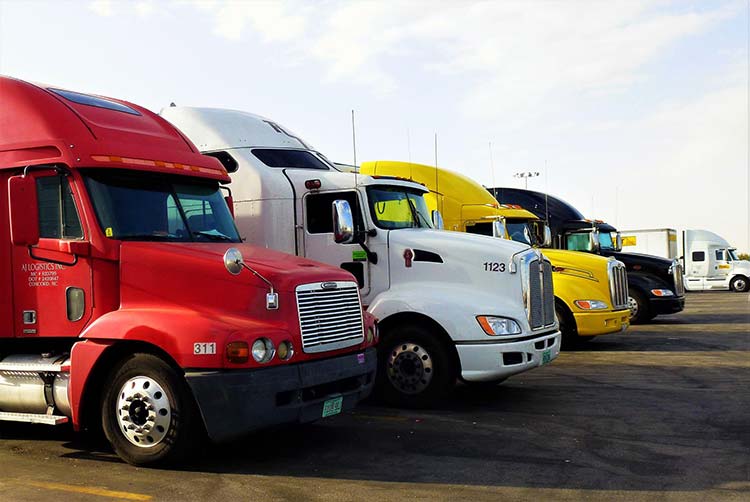
Fleet Fuel Cards for Optimal Car or Truck Expense Tracking
As a commercial truck or car owner, you always look for ways to reduce expenses and increase profits.Fleet fuel cards can help businesses reduce costs by providing fuel, maintenance, and repair discounts. Simply put, fuel cards work like credit cards, allowing a company to purchase fuel at a discounted rate from participating gas stations.
More...
Businesses can also use a fuel card to pay for maintenance and repairs at participating service providers. Many fuel card companies offer additional discounts and perks, such as cashback or points that can be redeemed for travel or merchandise.With a bit of research, corporations can find the right fleet fuel card for their business and start saving money on every gas purchase.
What are Fleet Fuel Cards, and how do they work?
Business owners use fleet fuel cards to track company car and truck expenses. They work by allowing the business owner to purchase fuel for their vehicles using a card connected with their company.This allows the business owner to keep track of their expenses, as well as receive discounts on fuel purchases.
Corporate gas cards can also help business owners automate their expense reports. This accounting perk allowsbusinesses to keep track of their car and truck expenses and separate expenses by a specific car, truck, or by driver.
Cards designated specifically for vehicle expenses enablecompanies to track and record vehicle maintenance expenses.This information can help businesses plan for future maintenance costs and quickly see which vehicles in a fleet are occurring the most expenses.
This data allows for better fleet management and provides information to make decisions about selling or adding more efficient vehicles to a fleet. Expense data on maintenance can also be used to negotiate better rates with service providers.
The benefits of using Fleet Fuel Cards
Some of the main benefits of using corporate gas cards include:
The disadvantages of using Fleet Fuel Cards
There are a few disadvantages of using corporate gas cards. The most common issue companies have faced is that some businesses may not be able to get discounts on fuel costs. Some cards are not accepted at every gas station across the country. Before applying for a card,check for a list of accepting locations near you.
How to choose the correct Fleet Fuel Card for your business
Business gas credit cards can be an excellent way for business owners to keep track of their car and truck expenses.But with so many different options available, it can be challenging to decide which card is right for your business. Here are some tips to help you choose the correct one:
1. Decide what type of card you need.
There are three types of cards available: corporate cards, purchasing cards, and driver cards. Corporate cards are designed for businesses that want to manage all their fuel purchases under one account.
Purchasing cards are intended for businesses that are looking to track individual employee fuel purchases. Driver cards are devised for companies that want to give drivers a dedicated card for buying fuel.
2. Consider your needs.
Some corporate cards offer discounts on fuel, while others offer rewards such as hotel stays or airline miles.
It would be best to decide which features are most important to a company and then find a card that offers those benefits.
3. Compare the fees.
Most car providers charge an annual fee and a fee for each transaction. Compare the cost of usefor each card to find the best one for your business.
4. Read the fine print.
Make sure that you understand all the terms and conditions of the gas card before you sign up. This includes interest rates, late payment fees, and expiration dates on rewards points.
5. Shop around.
Many different card opportunitiesare available, so take the time to compare other options before you decide which one is right for your business.
Tips for reducing your car and truck expenses with Fleet Fuel Cards
Business owners can reduce their car and truck expenses by following these tips:
1. Choose the right card provider. There are many providers of business fleet cards, so it is crucial to choose one that offers the best rates and services.
2. Sign up for a card that offers rebates. Most cards offer rebates on fuel purchases while others offer discounts on additional vehicle expenses that could increase fleet savings.
3. Use the card for all car and truck expenses. Business owners can easily track their spending using the card for all car and truck purchases beyond just fuel.
4. Keep track of spending limits. Some fuel cards have spending limits, so it is essential to stay within them to avoid extra fees.
By following these tips, businesses can save money on their car and truck expenses.
Fuel cards for vehicle fleets can be an excellent way for business owners to track their car and truck expenses while saving money on each gallon of gas purchased.
Related Posts
Are Dodge Chargers Expensive to Fix?
Top Simple Ways to Improve the Look of Your Car
A look under the hood of Waymo robotaxis
What are toll roads, and how to pay the tolls?
The Most Important Safety Device Drivers Don’t Know They Need
